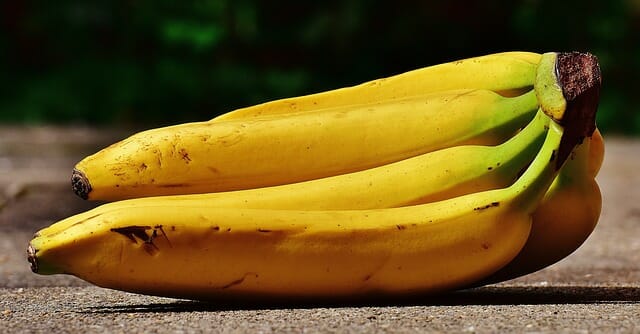Self-sufficient gardeners avoid the use of pre-packaged fertilizers and soil from the store. While fertilizers are easy to use, off the grid living means a store isn’t always nearby, and you might not have the means to purchase the items. Chances are you have plenty of items in your house that can be used to fertilize your garden, saving you money and time. Let’s take a look!
1. Coffee Grounds
Do you start the day with an overflowing cup of coffee? Those dried coffee grounds add nitrogen, potassium, and magnesium to your garden, all vital nutrients for the growth of your plants. However, it is important to remember that coffee grounds can change the pH of your soil, possibly affecting plants that need a delicate balanced fertilizer.
2. Tea Bags
If you aren’t a coffee drinker, tea bags have a very similar effect to the soil as coffee grounds. You have to remove the tea grounds from the bags and allow them to dry before application. Many gardeners notice tea grounds are particularly beneficial around tomatoes.
3. Egg Shells
Your chickens can contribute to more than just breakfast. Egg shells are a fantastic calcium source. Remember, you can grind them up and mix into their feed if you notice the shells becoming soft.
After breakfast, wash out the shells and let them dry. Break the shells into smaller pieces and put them in the ground when planting tomatoes. You can also add them around the base of already planted tomatoes. Tomatoes require more calcium than other plants.
All Natural Fertilizer Doubles Garden Production!
4. Fish Scraps
Early Pilgrims had trouble growing crops when they arrived in North America, mostly because of nutrient-lacking soil. The Indians who came to their aid, including the famous Squanto, taught the Pilgrims a trick – burying fish with the seeds. You don’t need to plant multiple fish inside of your garden, but using the scraps can help.
If you have an aquarium, don’t dump the water down the drain. Use this water to hydrate your garden beds and potted plants. The fish waste provides vitamins to the plants without any extra steps for you! If you filet a fish, save the bones and scraps. Some gardeners like to puree them with water and milk, creating a strong fertilizing mixture. You could bury scraps as well.
5. Wood Ash
Those who have a wood stove or fireplace have a free source of fertilizer, adding potassium and calcium carbonate to the soil. Remember never to use the ash if you added anything else! Ash is an easy way to increase your soil pH, so don’t use it if your soil is alkaline. Ash is also known for keeping slugs away from your plants.
6. Bananas
Do you have kids who eat bananas like candy? Your garden loves banana peels as well! Putting them in your compost pile is a good first step. You can also put them right into your garden to give the soil a quick potassium fertilizer boost. Peels degrade fairly quickly, and they don’t produce a nasty odor. A benefit of using banana peels is that they repel pests!
7. Powdered Milk
Do you have powdered milk in your cabinet that is past expiration? Don’t throw it away! You can mix one part milk into four parts water. You can also use expired milk in your fridge. Milk is a fantastic source of calcium for more than just humans! It also contains proteins, vitamin B, and sugars that improve the overall health of the plant. Plants that are failing to grow to their full potential can benefit from a boost in calcium. Milk also helps with blossom end rot and commonly ailing squash, tomatoes and pepper plants.
There are so many different household items that fertilize your garden. Instead of spending money at the store, raid your cabinets! Remember to put your vegetable and fruit scraps into the compost to save money and add nutrients to your garden.
What would you add to our list? Share your additions in the comments section below:
 Off The Grid News Better Ideas For Off The Grid Living
Off The Grid News Better Ideas For Off The Grid Living




